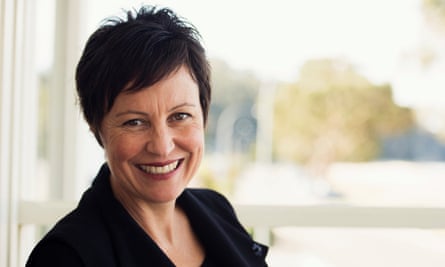It’s hard to feel success as a woman and possibly even harder if you are an Australian woman. With success comes a perception of power. And power in women is something we have yet to wholeheartedly welcome and embrace in Australia.
Fresh in our psyche is what happens to successful women who claim power. Beyond Julia Gillard, we have seen it in other prominent female leaders, observers and thinkers.
Some of us have wonderful men who delight in our success and do all they can to support us. Others do not. Some men are intimidated and resentful when women step into their magnificence. Being a successful woman is not an easy path.
So what has it taken to find myself here? I can remember writing a poem at age six. It was about a rabbit that was shot and died. And then a terrible thing happened. I read the poem aloud to my father and he said, “You’re going to be a great writer.”
For years I was devastated by the intergalactic divide that existed between my own writing and that of the great writers. I wrote my first novel at 21 and was crushed by how bad it was. The challenge seemed too great to overcome. I began another novel. But my writing turned out a bit like my knitting. The yarn was good, the colour was nice, I had the right needles. But the product was tight and lumpy and misshapen. My main character just ended up being hopelessly depressed.
Then I moved back to Tasmania. And that very first night a sentence came drifting in on the sea air. It was: “My brother Ambrose is a tiger hunter.”
Three years later that manuscript found its way to literary agent Gaby Naher and a little while later it was published as White Heart. It may have had kind reviews, but of course I only remember the one unkind review.
I started another novel. This one, The Butterfly Man, took me six years and totally surprised me by winning a crime fiction award even though all the judges agreed it was the least like a crime novel of any they had read.
My third novel, The River Wife, began when I was in a state of utter exhaustion, 12 weeks into life with a new baby. Although it was produced in a beautiful hardback, complete with ribbon, it is still the novel that has sold the least. Yet its handful of fans are the most ardent.
About then Danielle Wood invited me up for a cup of tea and so began our children’s series that we write together under the pen name Angelica Banks.

Through all this writing, there were three children, the normal demands of family life, a business to run, and commitments I made to community and sport. I wrote mostly at nights. I wrote when I could get an hour or two on the weekends. Sometimes I’d escape for a weekend, and for several years I escaped for a week or two of uninterrupted bliss at Varuna, the writers’ house in the Blue Mountains.
One day I was wandering the National Gallery of Victoria. A photo, and the interpretation beside it, caught my eye. It was about an artist called Marina Abramović. So began The Museum of Modern Love – a novel about endurance that took me 11 years to write.
To write it, I had to learn to be a better writer. I also had to learn about art and film composition, architecture and the history of the Baltic peninsula. I had to learn about Marina Abramović and New York. I listened to a lot Bach for cello when I wasn’t listening to movie scores.
The manuscript was rejected by three or four publishers in Australia and more in the US. But my agent refused to lose hope and sent it to Jane Palfreyman at Allen & Unwin. And now I am here. Forty-six years after that poem about a rabbit that was shot and died, I am here with a book about a self-harming Serbian and a man at the dark hour of his marriage.
I like to think of it as an overnight success.
Somewhere in trying to cross the cosmic divide that lay between being a six-year-old poet and a great writer, I stopped worrying about it. I accepted that I would never write like Faulkner or Eliot or Zola or Morrison or Murakami. I couldn’t write like Peter Carey or Helen Garner or Amy Witting or Thea Astley or Patrick White or Tim Winton.
I want nothing more than to continue to write, but nothing is more difficult for me than writing.
Once I received a royalty cheque for it for 57 cents. It came in a 60-cent envelope.
Winning this year’s Stella prize means I have been financially rewarded for my work. But even more than the incredible prize money is the sense of encouragement and acknowledgement that will stay with me all my days.
In a world where, I believe, the pen is still mightier than the AK-47, it remains, no matter the challenges, our task to tell our stories. To reflect the human experience. To find what is common and what is uncommon. To explore the past, be with the present, to imagine the future. Whether that is in fiction or nonfiction is immaterial; it’s the work that speaks that matters. And if we do not foster our creativity when we hear it calling – whether in our children or as adults – then the world is poorer for it.
Encouraging and applauding the success of women might become an elegant and subversive act of cultural freedom. An act that with unflinching determination we use to redefine our social landscape and realise our human potential. So that women and men in all their endeavours – in the arts, business, sport, health, education, politics, trades, media, sciences and domestic life – are equally respected, equally safe, equally heard and equally celebrated.
This is an edited version of the speech Heather Rose gave at the 2017 Stella prize presentation at Arts Centre Melbourne on Tuesday
